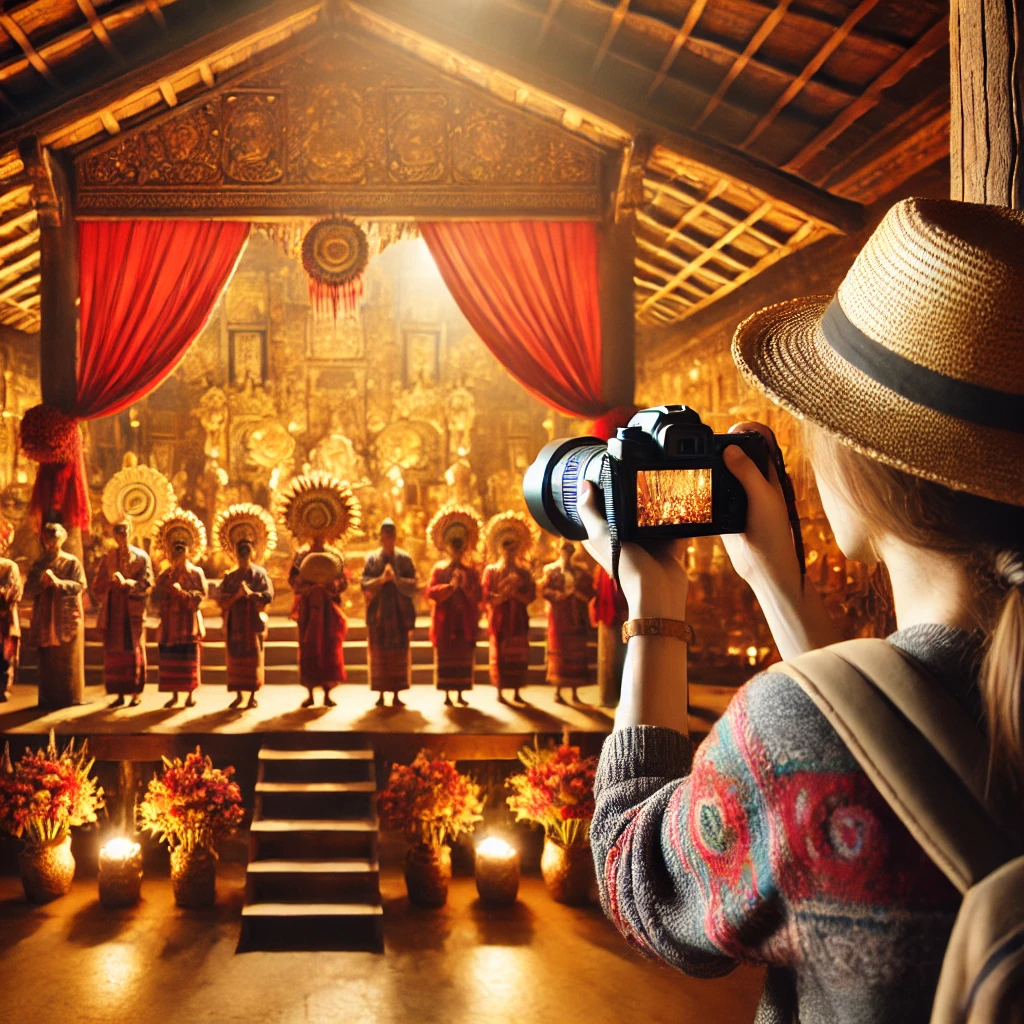Travel photography offers an exciting way to document different cultures, traditions, and landscapes. However, while capturing stunning images, it’s essential to ensure that our photography respects the local customs and values of the places we visit. This guide will explore the importance of respecting local cultures, cultural sensitivity, ethical photography practices, and practical steps to engage with communities respectfully.
Why Respecting Local Cultures Matters
1. Ethical Responsibility
As travel photographers, we are guests in someone else’s home. Being mindful of traditions and customs prevents cultural appropriation and exploitation.
2. Building Meaningful Connections
When we show respect, locals are more likely to be open and cooperative, allowing for more authentic photographic moments.
3. Preserving Cultural Integrity
Some traditions are sacred and should not be shared outside the community. Understanding these nuances ensures that we don’t contribute to misrepresentation.
Researching Local Customs Before Traveling
Before visiting a new destination, take time to learn about its traditions, norms, and etiquette. Here’s how:
- Read Cultural Guides: Books, blogs, and travel documentaries offer valuable insights.
- Engage with Locals Online: Join forums or social media groups where residents share cultural dos and don’ts.
- Understand Religious Sensitivities: Many places have restrictions on photography inside temples, mosques, or other sacred sites.
- Check Legal Regulations: Some countries prohibit photographing government buildings, military sites, or certain ceremonies.
Seeking Permission Before Taking Photos
1. Understanding Verbal and Non-Verbal Cues
- Always ask before taking close-up portraits.
- Learn a few key phrases in the local language, such as “May I take your photo?”
- Pay attention to body language. If someone seems hesitant, respect their decision.
2. When and How to Offer Compensation
- In some cultures, taking a photo is considered a transaction, and a small tip is appreciated.
- However, be mindful not to encourage a culture of dependency by overpaying or exploiting vulnerable groups.
Respecting Religious and Cultural Sites
Many religious sites have strict guidelines about photography. Before taking pictures:
- Observe and Follow Local Practices: If locals remove their shoes, cover their heads, or dress conservatively, do the same.
- Avoid Flash Photography: Some religious artifacts are sensitive to light.
- Respect Prayer and Ceremonies: Do not interrupt rituals for the sake of a photograph.
Avoiding Stereotypes and Misrepresentation
Travel photography should depict an honest representation of the culture. To ensure authenticity:
- Show a Range of Perspectives: Avoid cliché images that reinforce stereotypes.
- Capture Everyday Life: Moments of daily routines often tell the most compelling cultural stories.
- Be Aware of Power Dynamics: Avoid exploitative photography that portrays people as exotic or primitive.
Editing and Sharing Photos Ethically
Editing should enhance, not alter reality. Keep these points in mind:
- Avoid Overprocessing: Over-saturated or exaggerated filters can distort the true essence of a place.
- Give Credit When Due: If a local has guided you to a special spot or shared insights, acknowledge them.
- Respect Privacy: Do not share images of individuals in vulnerable situations without consent.
Conclusion
Respecting local cultures in travel photography is about more than just taking pictures—it’s about honoring the traditions and values of the communities we visit. By researching beforehand, seeking permission, respecting cultural sites, and avoiding stereotypes, we ensure that our photography is both ethical and impactful.
Whether you’re a seasoned professional or an aspiring travel photographer, approaching photography with cultural sensitivity will lead to richer, more meaningful experiences. Travel responsibly, photograph respectfully, and share the world’s beauty with integrity.
By following these guidelines, you contribute to a more ethical and respectful photography practice while building positive connections with local communities. Happy photographing!

Sony Alpha a7 IV: The Ultimate Camera for Photography

Nikon Z5 Review: Is It Worth It?
-

Nikon Z9 : Game-Changer for Photography
-

Top Features of Nikon D850 That Make It Ideal for Portfolio Shoots
Sony Alpha a7 IV: The Ultimate Camera for Photography
Explore the Sony Alpha a7 IV in this complete 2025 review. Learn how its pro-level features, real-world performance, and hybrid flexibility make it the ultimate camera for photography across genres like portraits, weddings, travel, and commercial work. Table of Contents Section 1: Introduction – Why the Sony Alpha a7 IV Stands Out The Sony Alpha…
Nikon Z5 Review: Is It Worth It?
In 2025, photographers—whether hobbyists, content creators, or professionals—seek equipment that blends value, performance, and future-readiness. Enter the Nikon Z5, a full-frame mirrorless camera marketed as a gateway to high-end imaging without a flagship price tag. But how well does it hold up under real-world demands like studio shoots, weddings, landscape adventures, and lifestyle photography? In…
Nikon Z9 : Game-Changer for Photography
Discover why the Nikon Z9 is considered a true game-changer for photography. This in-depth Nikon Z9 review explores key features, real-world performance, and how it excels in professional photo shoots in 2025. Table of Contents 1. Introduction The photography world witnessed a significant shift with the launch of the Nikon Z9, a flagship mirrorless camera…
Top Features of Nikon D850 That Make It Ideal for Portfolio Shoots
Discover why the Nikon D850 is the ultimate DSLR for portfolio shoots. Explore its top features—from resolution and dynamic range to autofocus precision and workflow speed—that help photographers create stunning, high-impact images for professional portfolios. Whether you’re a portrait artist, fashion photographer, or visual storyteller, a portfolio shoot demands technical excellence, creative flexibility, and uncompromised…
Candid Moments with Canon EOS R10: Lightweight & Reliable
In the evolving world of mirrorless photography, the Canon EOS R10 stands out as a lightweight yet powerful camera tailored for real-life storytelling. Whether you’re photographing street scenes, family gatherings, weddings, or spontaneous portraits, capturing genuine emotion requires a responsive and discreet tool. This article dives deep into how the Canon EOS R10 excels in…
Bold Portraits with Canon EOS R5: Is It the Best for Work?
Studio photography has always demanded precision, artistry, and impeccable gear. As the expectations for commercial portraits, fashion campaigns, and editorial work continue to rise, the tools we use must evolve. Enter the Canon EOS R5, a camera that has stirred the professional waters with its impressive technical specs and forward-thinking design. In this comprehensive Canon…


